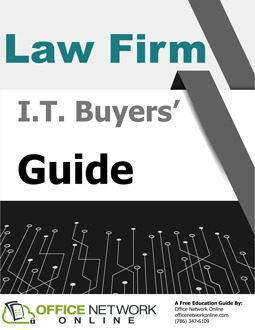
Tax season isn’t just a hectic time for your law firm—it’s also prime hunting ground for cybercriminals. With a high volume of sensitive financial transactions, legal documents, and communication with clients, your firm is at greater risk of cyberattacks.
Most hackers target law firms to steal confidential information, manipulate payments, and disrupt operations. Today, we’ll explain why tax season puts legal professionals at higher risk and how you can safeguard your practice.
Why Law Firms Are Prime Targets During Tax Season
- Handling Large Amounts of Sensitive Data
Attorneys frequently deal with confidential financial records, trust accounts, and tax filings on behalf of clients. This makes law firms attractive to cybercriminals looking to exploit valuable information.
- Increased E-mail Communication
With tax deadlines approaching, law firms receive a surge of e-mails from clients, accountants, and tax professionals. Cybercriminals take advantage by sending fraudulent e-mails disguised as legitimate correspondence.
- Payment and Trust Account Scams
Cybercriminals often attempt to manipulate lawyers into misdirecting client funds by impersonating trusted contacts such as clients, accountants, or financial institutions.
- Compliance Pressures Create Vulnerabilities
With strict regulatory requirements, attorneys may rush to meet tax deadlines, making them more susceptible to scams that appear urgent or official.
Common Tax Season Cyber Threats Targeting Law Firms
- Phishing E-mails: Fraudulent messages pretending to be from the IRS, clients, or tax preparers, requesting sensitive information or containing malicious links.
- Fake Payment Instructions: Hackers may impersonate clients or accountants, asking firms to wire money to fraudulent accounts.
- Ransomware Attacks: Malicious software that locks critical financial data, demanding ransom to regain access.
- Social Engineering Scams: Calls or e-mails impersonating accountants or financial institutions to extract confidential data.
How To Protect Your Law Firm This Tax Season
- Educate Your Team & Staff
Train your legal team to recognize cyber threats, including:
✔ Verifying e-mail senders before clicking links or downloading attachments.
✔ Watching for urgent payment requests or unexpected client instructions.
✔ Reporting suspicious e-mails or communications immediately.
- Secure Your E-Mail & Data Exchange
- Encrypt all sensitive tax-related communications.
- Use secure document-sharing platforms instead of e-mail attachments.
- Avoid clicking on unsolicited links claiming to be from tax agencies or financial institutions.
- Implement Multifactor Authentication (MFA)
MFA adds an extra layer of security to your legal accounts, preventing unauthorized access even if passwords are compromised. Enable MFA on:
✔ E-mail accounts
✔ Financial systems
✔ Client portals
- Conduct a Cybersecurity Audit
Before tax season is in full swing, assess your firm’s cybersecurity posture:
- Update software and apply security patches.
- Verify the security of your firm’s network and endpoints.
- Ensure your data backup system is functioning properly.
- Double-Check All Financial Transactions
- Always verify payment requests via a second method, such as a phone call.
- Be cautious of sudden changes in wire instructions or urgent transfer requests.
Stay Ahead of Cybercriminals This Tax Season
Don’t let hackers take advantage of your law firm’s busy tax season. By implementing strict cybersecurity measures and staying vigilant, you can protect your practice and clients from financial fraud and data breaches.
🔒 Take the first step in securing your firm! Get a FREE Cybersecurity Assessment to identify vulnerabilities before hackers do.



